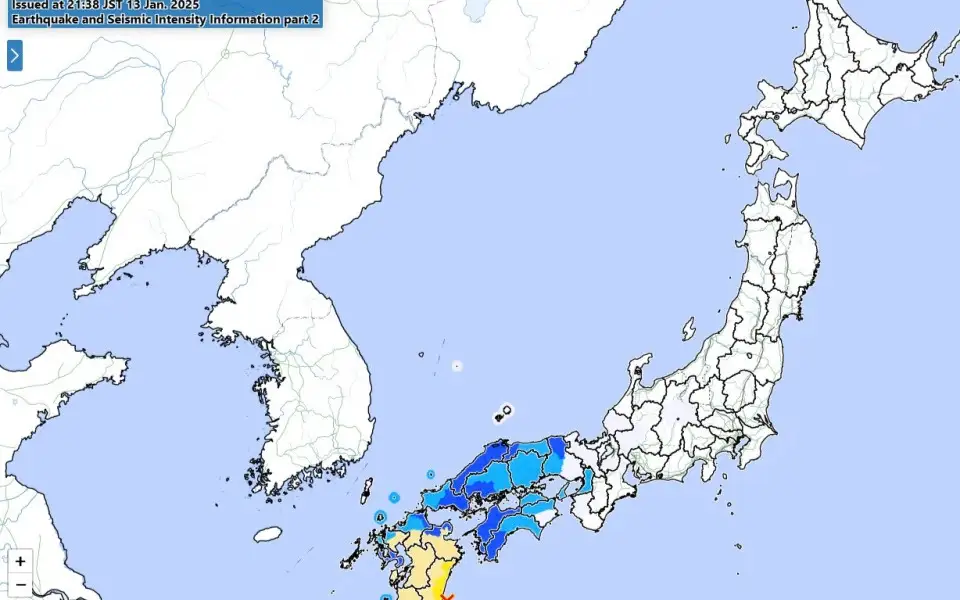WNAM REPORT: An earthquake with a magnitude of 6.6 struck southwestern Japan on Monday, with no immediate reports of injury or damage, and small tsunami were observed in parts of Miyazaki and Kochi prefectures, the weather agency said.
The agency opened an investigation into potential further seismic activity in the region, but concluded that the 9:19 p.m. temblor will not immediately raise the risk of a megaquake a government panel has said could occur in or near the Nankai Trough near the country’s Pacific coast.
The Japan Meteorological Agency launched the examination after issuing its second-ever Nankai Trough Extra Information, having first done so last August.
The latest quake “is not considered to have raised the risk of a Nankai Trough quake” to a relatively high level compared with normal conditions, the agency said.
While the jolting occurred beneath the western edge of the hypothesized epicenter of a Nankai Trough quake, it was not powerful enough to lead the agency to issue a special alert, it said.
The quake’s magnitude was revised twice, with the initial estimate of 6.4 adjusted to 6.9, then later updated to 6.6.
The quake measured a lower 5 on the Japanese seismic intensity scale of 7 in Miyazaki, Shintomi and Takanabe in Miyazaki Prefecture, the agency said. It occurred in the Hyuga Nada Sea, off the coast of the prefecture, at a depth of approximately 36 kilometers.
At the lower 5 level, many people are frightened by the shaking and seek to hold onto something stable while it lasts.
A tsunami around 20 centimeters in height was observed in parts of Miyazaki Prefecture, while another of about 10 cm was seen in areas of Kochi Prefecture. The agency has since lifted all tsunami advisories.
Service on some parts of the Kyushu Shinkansen bullet train line was temporarily suspended due to the temblor, the train operator said.
No abnormalities were detected at the Ikata nuclear power plant in Ehime Prefecture or the Sendai nuclear power plant in Kagoshima Prefecture, according to the operators.
The quake was also felt across wide areas of western Japan.
Megaquakes in the Nankai Trough that runs along the Pacific coast occur every 100 to 150 years, the last being the 1944 Tonankai and 1946 Nankai quakes that together struck a wide area from central to southwestern Japan.
A magnitude 8 to 9 earthquake has a 70 to 80 percent chance of occurring within 30 years, according to a government estimate.
On Aug. 8, the Japanese government issued a Nankai Trough quake advisory following an M7.1 quake that occurred in the Hyuga Nada Sea, the first since the system’s implementation in 2017.
At the time, the government called for caution over the increased risk of strong shaking across a large area following a panel deliberation similar to Monday’s.
While the government urged increased disaster preparedness as opposed to evacuating in anticipation of a megaquake, some municipalities in the region have set up evacuation centers and advised elderly residents, in particular, to take precautions.
As written before, a quake was recorded 77 km away from Almaty on January 11.


